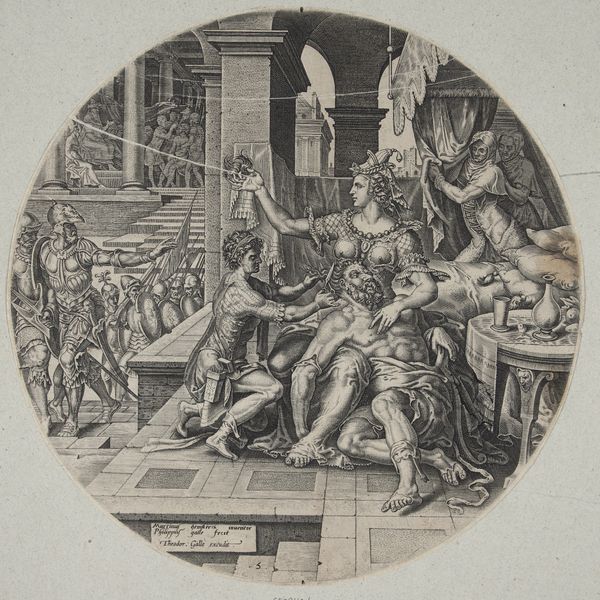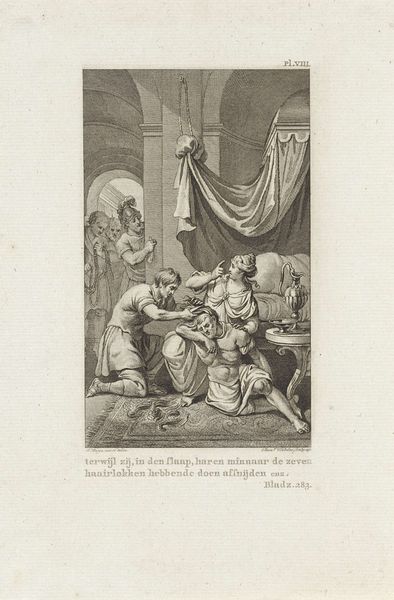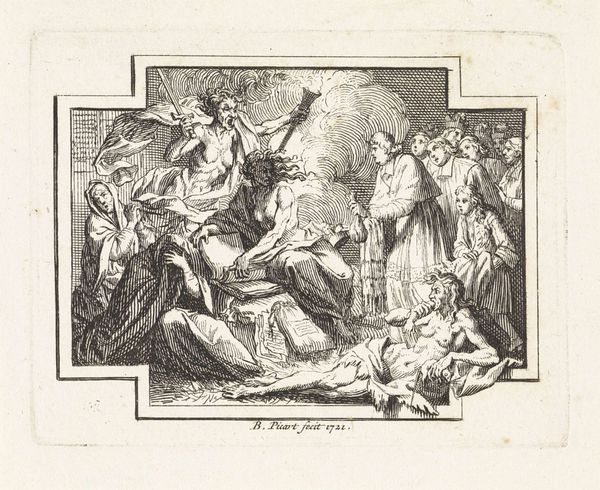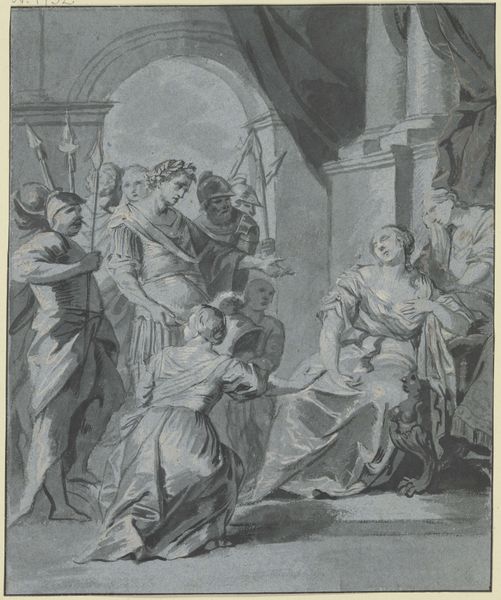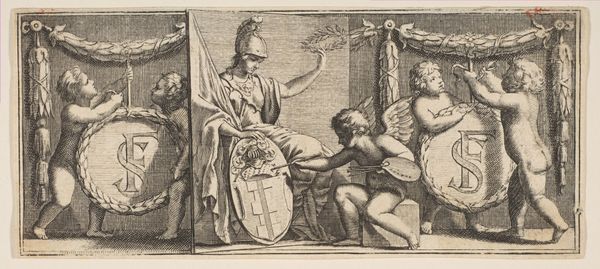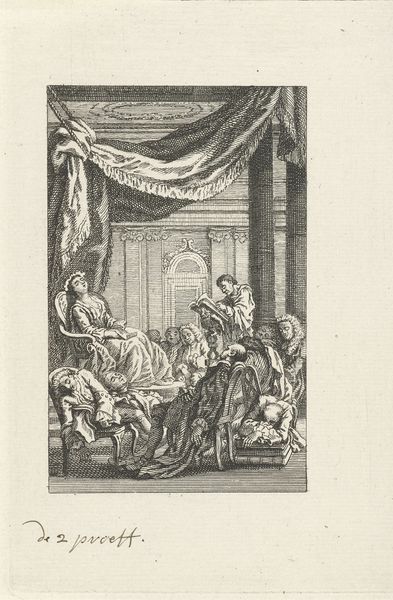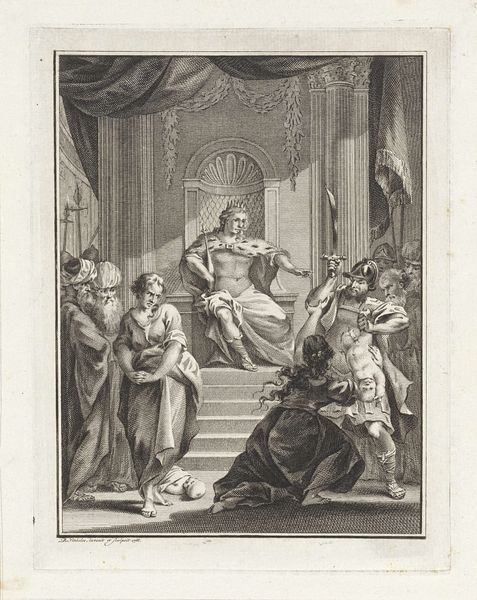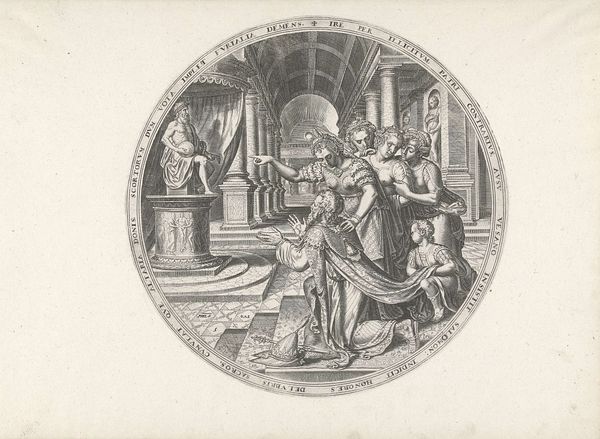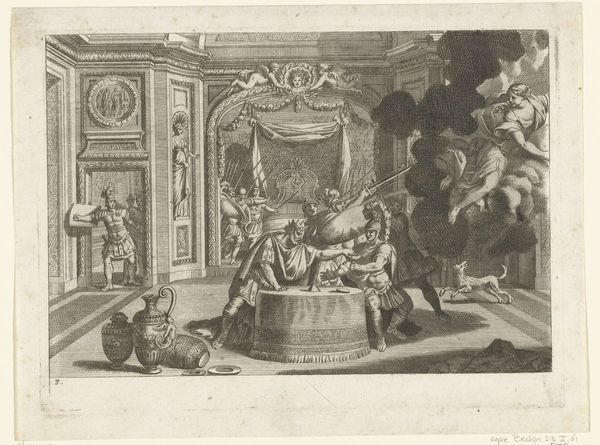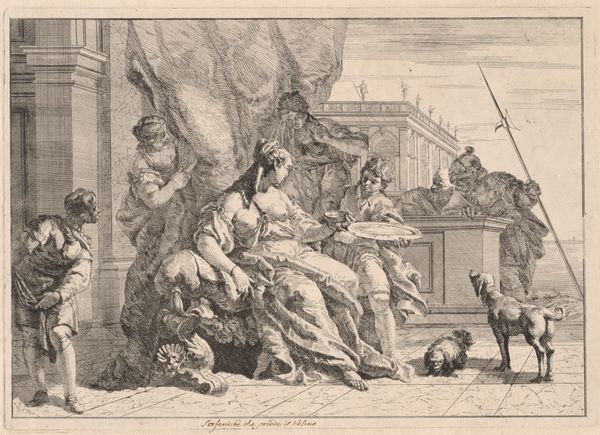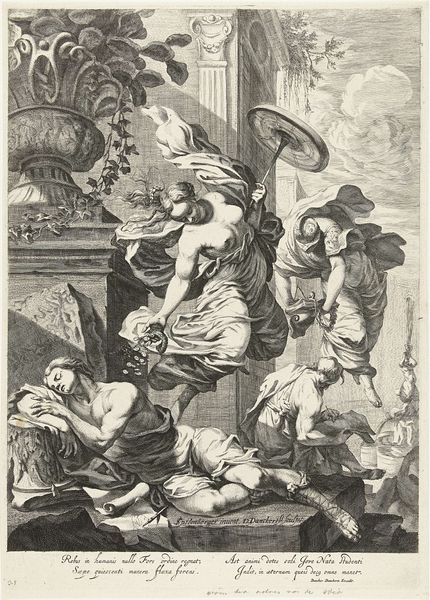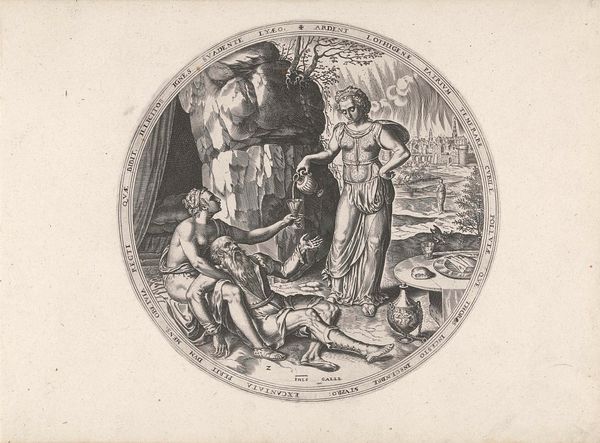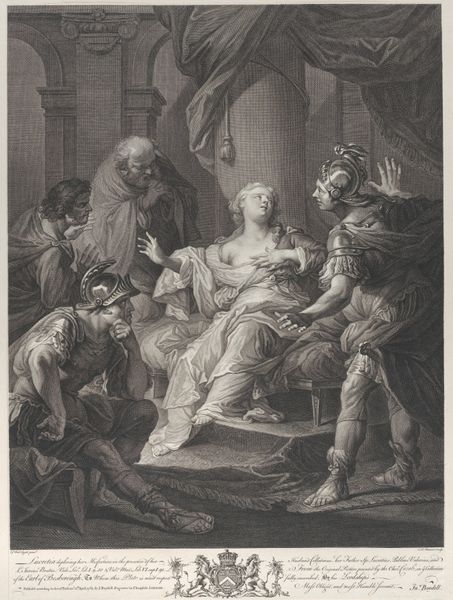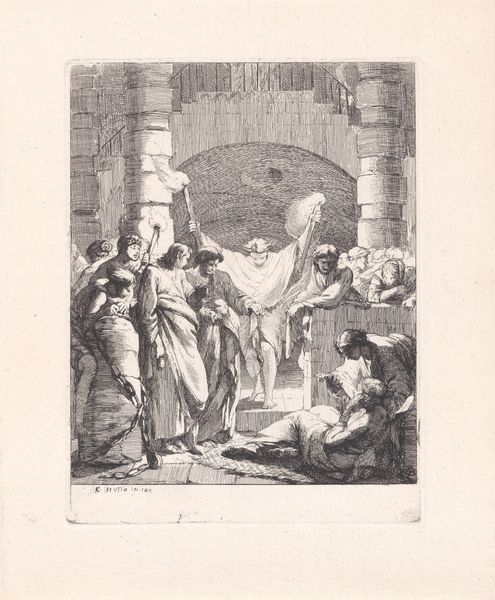
print, engraving
#
historical design
#
narrative-art
# print
#
figuration
#
pencil drawing
#
line
#
history-painting
#
northern-renaissance
#
engraving
#
columned text
Copyright: Rijks Museum: Open Domain
This engraving by Philips Galle captures a pivotal moment: Delilah cutting Samson's hair. The vulnerability of the sleeping giant contrasts sharply with Delilah's calculating expression, poised with raised arms, directing the betrayal. Consider the lock of hair, the source of Samson’s strength, as a potent symbol. Hair has long been associated with virility, power, and identity. Think of the ancient rituals where hair was offered to deities, or the tonsuring of monks, signifying a renunciation of worldly power. In severing Samson's hair, Delilah doesn't just rob him of his physical strength, but also his very essence. This motif of treacherous betrayal echoes through art history, from Judith beheading Holofernes to Salome with the head of John the Baptist. It’s a primal narrative that resonates deeply within our collective consciousness, tapping into our anxieties about trust, vulnerability, and the seductive nature of deceit. Each iteration reflects humanity's cyclical engagement with themes of power, loss, and the eternal dance between strength and weakness.
Comments
No comments
Be the first to comment and join the conversation on the ultimate creative platform.
